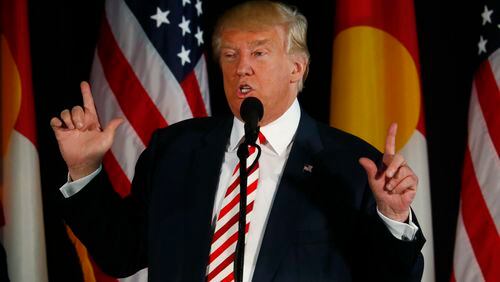If Donald Trump does not spend the next four years in the White House as president of the United States, will he may take a turn as president of a TV network?
Some are speculating that a new business venture may be on Trump’s horizon should he lose the election next month.
According to a story from The Financial Times, Trump’s son-in-law, Jared Kushner, contacted Aryeh Bourkoff, the founder and CEO of LionTree, a boutique investment bank, about the possibility of funding a new media venture for Trump. The story said the conversation between the two was brief; other reports say Bourkoff has said he would not be part of such a deal.
The news of the meeting isn’t the first we’ve heard about a possible plan in the works for “Trump TV.” Vanity Fair reported in June that Trump was considering starting his own media company, according to anonymous sources, following what he hoped was time in the White House. Trump already owns a TV-production business, Trump Productions LLC, a network would be a separate venture.
According to The Washington Post, Trump said he had "no interest in a media company" and reports that he was considering setting up one was "a false rumor."
However, some have speculated that Trump's run for president, either intentionally or as a byproduct of the 2016 election process, has put the New York billionaire in a sweet spot to start his own TV channel or full-fledged network.
Trump has become famous for his use of social media, Twitter in particular, where he enjoys some 11 million followers.
Social media could play a large part in a new network venture, according to Merrill Brown, former senior vice president of CourtTV, and the founding editor-in-chief of MSNBC.com. Brown, in a CNBC story, points out that a traditional TV network is an expensive thing to create and run, but launching a digital version is much more doable for someone with Trump's resources.
"He believes he has a route directly to people through social media access, and I think it's definitely the logical way they can do this."
Brown said programming could be as simple as a reality TV show about Trump’s family, or Trump sharing his views on current events.
While starting a traditional network from the ground up would take millions, if not a billion dollars, buying an existing one could be more reasonable for Trump, Brown said.
"For the middle to lower tier of cable networks right now, it probably wouldn't take $500 million."
For a digital network, it would be a fraction of that cost.
According to a story from Slate, Trump would save a considerable amount of money by having to produce only 15 to 30 hours of digital programming each week as compared to a 24 hours a day of programing.
His business model would determine how quickly or if he could regain his investment.
He could offer free access to a network, use a subscription model or combine the two, having a portion of the programming for free and premium content available via paid subscription, the Slate story pointed out.
Then there is the advertising. If the Trump TV network model includes advertising, who would buy time on it?
Numerous stories have pointed out that Trump’s “brand” has been damaged by his comments about Muslims and Mexicans, and by claims from some women of sexual misconduct. Trump has denied those claims.
Other digital ventures by conservatives have failed to catch fire. Glenn Beck laid off 40 employees from "Blaze" in August, some say in order to pay off a bank loan that was intended to keep the company afloat.
In 2015, former vice presidential candidate Sarah Palin pulled the plug on her Internet subscription-video channel.
About the Author






